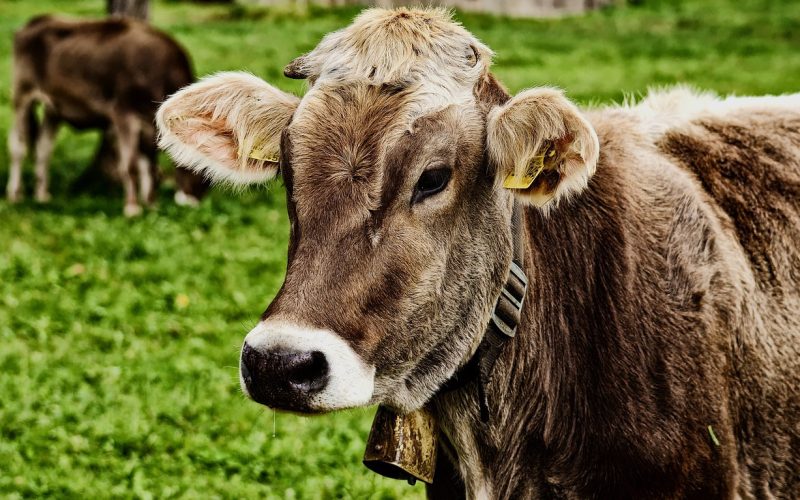After the Paris International Agricultural Show, which made headlines more for the farmer brawls and political appearances than it did for the Laïka the Holstein Cow that won a gold medal, Minister of Agriculture Marc Fesneau announced a path forward for France and its food sovereignty. The minister told the French Parliament’s Defense Committee on Tuesday, March 5th that food has become a “weapon” and that the EU must “overcome its naivety”.
The minister went on to further underline, “Europe’s collective mistake is to have disarmed the continent” on food sovereignty while the Americans along with the Chinese have been actively working towards food sovereignty for a long time. In the case of France, the minister cited the core actions that need to be taken, including reducing dependence on imports in many sectors, such as animal feed – much of which is coming from Brazil – as well as fruit, vegetables, and poultry. The necessity for food sovereignty comes just as much from environmental considerations as geopolitical ones.
This comes on the heels of farmer protests that roiled throughout Europe. In Paris as well as in Brussels, farmers are asking about what Brussels can do for them rather than what they can do for Brussels. Concretely, this meant discussing free-trade agreements, falling revenues, and a simplification of the Common Agricultural Policy. Of particular concern is the market being flooded with cheap South American beef, should the EU conclude the much-discussed trade deal with the MERCOSUR countries.
Increasing urgency for thoughtful policy-making
Many of the points brought up by the farmers are echoed by EU Agriculture Commissioner Janusz Wojciechowski who blamed the bloc’s trade and climate policies for farmers’ discontent. The Commissioner emphasized the importance of ensuring “fair” competition in the EU trade agreements and the “burdens” of the Green Deal. He went on to say that imports from countries like Morocco posed a threat to European farmers since they were not being held to the same production standards, as well as the looming potential MERCOSUR trade agreement. ”The principle of reciprocity in trade requires changes in our trade policy and greater protection for agriculture,” he added.
Although the EU-MERCOSUR trade agreement has been in talks since 1999, dismissing it as unlikely is irresponsible and does not take into consideration its possible repercussions on Europe. Alternating between stalemates and leaps forward, it’s true that the road to an agreement has been a bumpy one. Currently, in Europe, there does not seem to be an appetite to take this agreement to the finish line, France is a fierce opponent, and as environmental expectations of the deal rise to conform to the European Green Deal and varying COPs, the costs become higher as well. Most recently, the MERCOSUR side has asked for €12.5 billion in recompense to offset the cost of achieving the environmental stipulations Europe has added to the deal.
The deal is one of monumental proportions, creating a free trade area that could span almost 800 million people, as well as the MERCOSUR countries benefiting from better conditions on exports ranging from beef to ethanol. Currently, in the context of widespread European farmer protests, cheap beef dumping should be unattractive to all political parties wishing to hold on to their power. However, it is worth thinking about what comes next, especially as China continues to enjoy a privileged relationship with the region. Ultimately, what is clear is the need for thoughtful legislation that takes into account the geopolitical complexities of Europe, but also beyond.
Careless policymaking creates unnecessary conflicts
The question of careless policymaking extends beyond farmers and moves to consumers. In Brussels, the front-of-pack label is a pertinent example of policymaking that negatively affects farmers and consumers. In the spirit of harmonization, the FOP label was initially proposed to help facilitate the integration of healthy food choices into the lives of consumers. Much like the other proposed bills, the result ended up being the exact opposite. The most well-known iteration of FOP is the French label, called Nutri-Score. The Nutri-Score system labels and ranks foods from allegedly most healthy to least healthy, with an associated letter grade (A-E) as well as a corresponding color, green to red. The most frequent criticism of the grading system is that it goes against precisely its purported aims–to support, encourage, and facilitate healthy food choices for consumers.
Instead, Nutri-Score can confuse consumers even more. Its algorithm is in a constant state of flux, the letter grades of foods shifting to seemingly appease critics. The 2023 update that mainly focused on beverages saw alternative milks go from an A grade to anywhere between a B to a D in response to critics who cited the often-substantial amounts of added sugar in alternative milks. Following said logic, skim milk—a single-ingredient product with no added sugar—should have a perfect grade, while in reality, it still only scores a B grade.
For the consumer, concretely, the algorithm shifts mean waiting for the new rules to fall to see whether what they have been previously purchasing was actually better or worse than what the label indicated, creating, unsurprisingly, terrible confusion for those wishing to do their grocery shopping. However, the algorithm’s fierce criticism extends beyond consumers—the flawed algorithm equally negatively affects farmers. European farmers, particularly those creating traditional products – often with European labels associated with excellence like AOP or DOC – like Spanish olive oil, Roquefort cheese, or prunes. Prunes were recently downgraded from an A to a C—rather difficult to understand when one considers that prunes are a whole food with no added sugar. At a time when impactful policymaking is of vital importance, FOP labels like Nutri-Score fall, unfortunately, wildly short.
Honor the strategic importance of the farmer
Ultimately, as Marc Fesneau correctly indicates, we must overcome our collective naivety and accept that food has reached a critical juncture. What we eat and where it comes from now goes beyond personal preference and a letter grade and becomes a question of whether a nation is able to feed itself, as the geopolitics of food become increasingly complex.
Those who produce our food are likely to face unfair competition be it in the food of environmental policies or impending potential trade deals. To add another unnecessary step to the food production cycle would simply underline the already well-made point that Brussels does not understand what it takes to feed a continent and that the farmers who actively contribute to the continent’s nutrition are also those bearing the brunt of policies that have not been thought through. Should they decide to give us a grade, it is unlikely that we would fare well.









